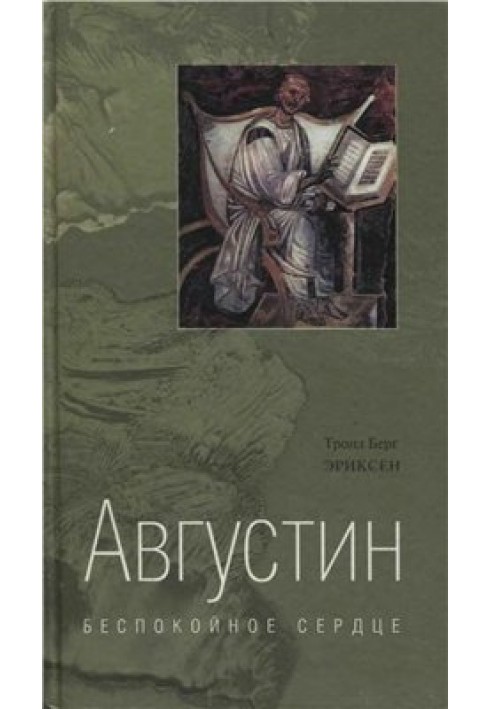Augustine. Restless Heart
 Instant download
Instant download
after payment (24/7)
 Wide range of formats
Wide range of formats
(for all gadgets)
 Full book
Full book
(including for Apple and Android)
“In a book designed to give the reader an idea of Augustine and his works, it is necessary to highlight this figure from at least three sides: to show him as a rhetorician (including tracing his education and development in this capacity), as a philosopher, who brought together Neoplatonism and Christianity, and as a shepherd who ruled his bishopric on the eve of the collapse of the Roman Empire. In addition, we should touch upon the unparalleled influence of his ideas on his contemporaries and subsequent generations. It is very difficult to separate the three roles that Augustine played throughout his life, but we can say that they partly correspond to the three stages of his development: starting as a rhetorician, he gradually turns into a philosopher and ends his days as a church leader. In other words, first Augustine wants to mislead the world, then he observes it, and in the end he tries to fight it." "Our time - the turn of the millennium - seems especially favorable for turning to Augustine, since he very seriously influenced the interpretation of history in the system Christian views. His essay “On the City of God,” to which I have long been planning to devote a separate book, briefly outlines the ancient Church’s understanding of the course of history. In fact, this work makes the most daring attempt of all to reveal the meaning of the historical process in general and the collapse of the Roman Empire in particular. Augustine paints a picture of enormous scale, in which everyone has a strictly defined place. “The subtitle of my book, The Restless Heart, seems borrowed from a cheap novel. But this expression so accurately conveys Augustine’s worldview that it is difficult to do without it. This formulation is also important historically, since Augustine was the first to describe anxiety as the basic state of man, as his destiny. God created man to walk upright, and this is a hint to man where and how he should look for his goal. People should not, like dumb cattle, bend to the ground. This is how those who indulge their vicious passions behave. True people are called to direct their eyes upward, to reach out with their souls to the Lord. Only in God do we find “peace” (quies), that is, freedom from passions and desires. And until we finally appear before the face of the Creator, our hearts will remain in “restlessness” (inquietum est cor nostrum). The ancient Stoics idealized dispassion and “tranquility” (tranquillitas). But Augustine does not consider peace to be a possible or worthy ideal - at least when it comes to a person’s earthly life. Here on earth, our hearts will always feel restless - and this is quite natural. It is right to fear and desire, to grieve and rejoice, only if these emotional disturbances concern the right things (On the City of God. XIV, 9). Anxiety indicates that we are not at home, that our stay in this world is only temporary, that we are heading further.”
Data sheet
- Name of the Author
- Тронд Берг Эриксен
- Language
- Russian













